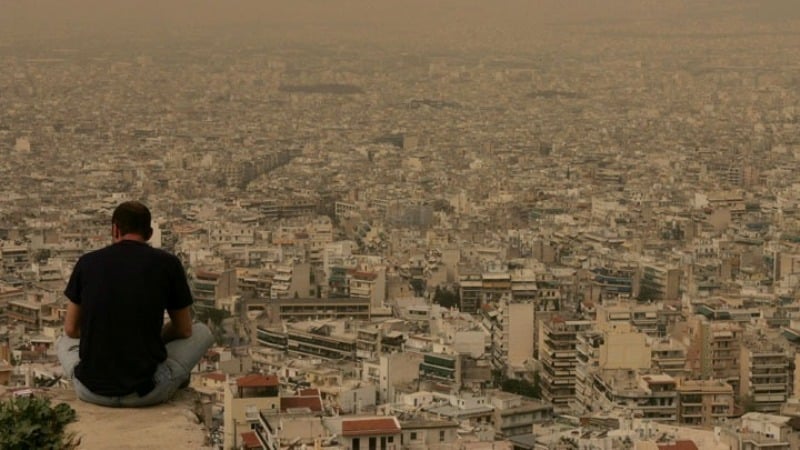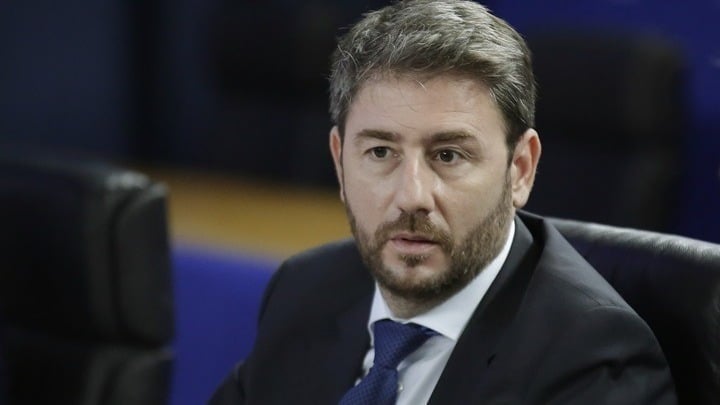EU states to assure Greece on Iran oil ban
EU foreign ministers will assure Greece on Monday that it will still be able to buy oil on reasonable terms after the introduction of a planned EU ban on Iranian crude, a senior Brussels official said.

EU foreign ministers will assure Greece on Monday that it will still be able to buy oil on reasonable terms after the introduction of a planned EU ban on Iranian crude, a senior Brussels official said.
EU foreign ministers will assure Greece on Monday that it will still be able to buy oil on reasonable terms after the introduction of a planned EU ban on Iranian crude, a senior Brussels official said.
But he added that ministers, who plan to announce the embargo at a meeting on Monday, will not come out with a detailed plan that same day on how to maintain supplies to Greece, which sources around 23 percent of crude imports from Iran.
Growing Western pressure on countries not to buy Iranian crude has led Tehran to drop its normal demand for financial guarantees from the cash-strapped Greeks. Athens’ dependence on these favorable financing terms has been the main sticking point as the EU draws up an embargo to pressure Tehran over its nuclear programme.
”The financial situation of Greece at the moment is not the brightest one, and rightly they are asking us to help them find a solution,” a senior EU official told reporters on Friday.
”We have to find a way on Monday to give all the assurances and commitments that will allow Greece to say ’okay’.” The problem shows how the eurozone financial crisis is complicating the bloc’s non-financial policies. Greece is currently trying to get international creditors to agree to a debt swap plan in order to avoid a disorderly bankruptcy.
Other oil exporters are unlikely to accept terms as advantageous as the Iranians have offered Greece – even if it has so far paid for imports on time, the official said.
”Of course it will be more difficult with alternative suppliers because of the present financial situation in Greece,” the official said. ”They will ask for some guarantees.” The West alleges that Tehran is developing nuclear weapons — something Tehran denies, saying its nuclear programme is only for electricity generation and medical applications.
However, the EU’s members remain divided over several points on proposed sanctions, primarily the length of a planned grace period that would allow states heavily dependent on Iranian oil to fulfil existing contracts after the ban went into place.
The EU move follows stringent new US sanctions passed in December. These are being gradually implemented, but if fully enforced by the White House would make it difficult for importing countries to pay for Iranian oil.
The unprecedented effort to take Iran’s 2.6 million barrels of oil per day off international markets has kept global prices high, pushed down Iran’s rial currency and caused a surge in the cost of basic goods for Iranians.
One EU diplomat said the bloc would be careful that its proposed sanctions did not destabilize the oil market and damage fragile economic growth.
”We would need to consider how the international oil market responded and how other international partners responded,” he said. ”And we would most importantly need to consider what impact we are having on Iran.” [Reuters]
ολες οι ειδησεις
- Θεσσαλονίκη: Αυτοκίνητο παρέσυρε 17χρονο ποδηλάτη – Σε σοβαρή κατάσταση στο νοσοκομείο
- Θεσσαλονίκη: Κουνιάδος χτύπησε με μαρμάρινο σταυρό τη νύφη του σε κοιμητήριο
- Νίσυρος: Κατήγγειλε 50χρονο ότι έδειξε πορνογραφικό υλικό στον γιο του και κινδυνεύει με απέλαση – Πάνω από έξι τα παιδιά που παρενοχλήθηκαν
- Σύστημα εντοπισμού υπνηλίας θα έχουν υποχρεωτικά από τον Ιούλιο τα καινούρια οχήματα
Ακολουθήστε το Newpost.gr στο Google News και μάθετε πρώτοι όλες τις ειδήσεις
Δείτε όλες τις τελευταίες Ειδήσεις από την Ελλάδα και τον Κόσμο, στο Newpost.gr








